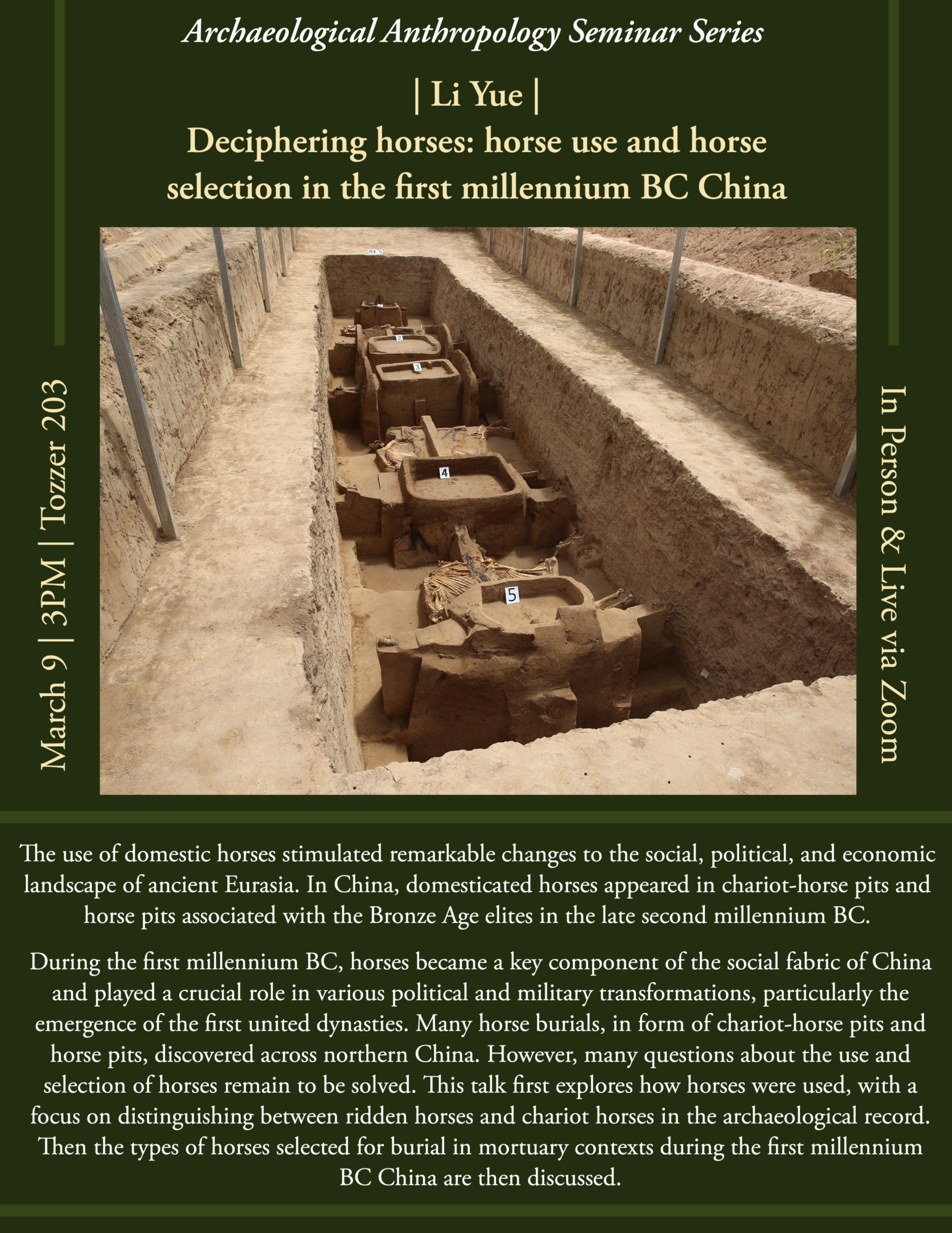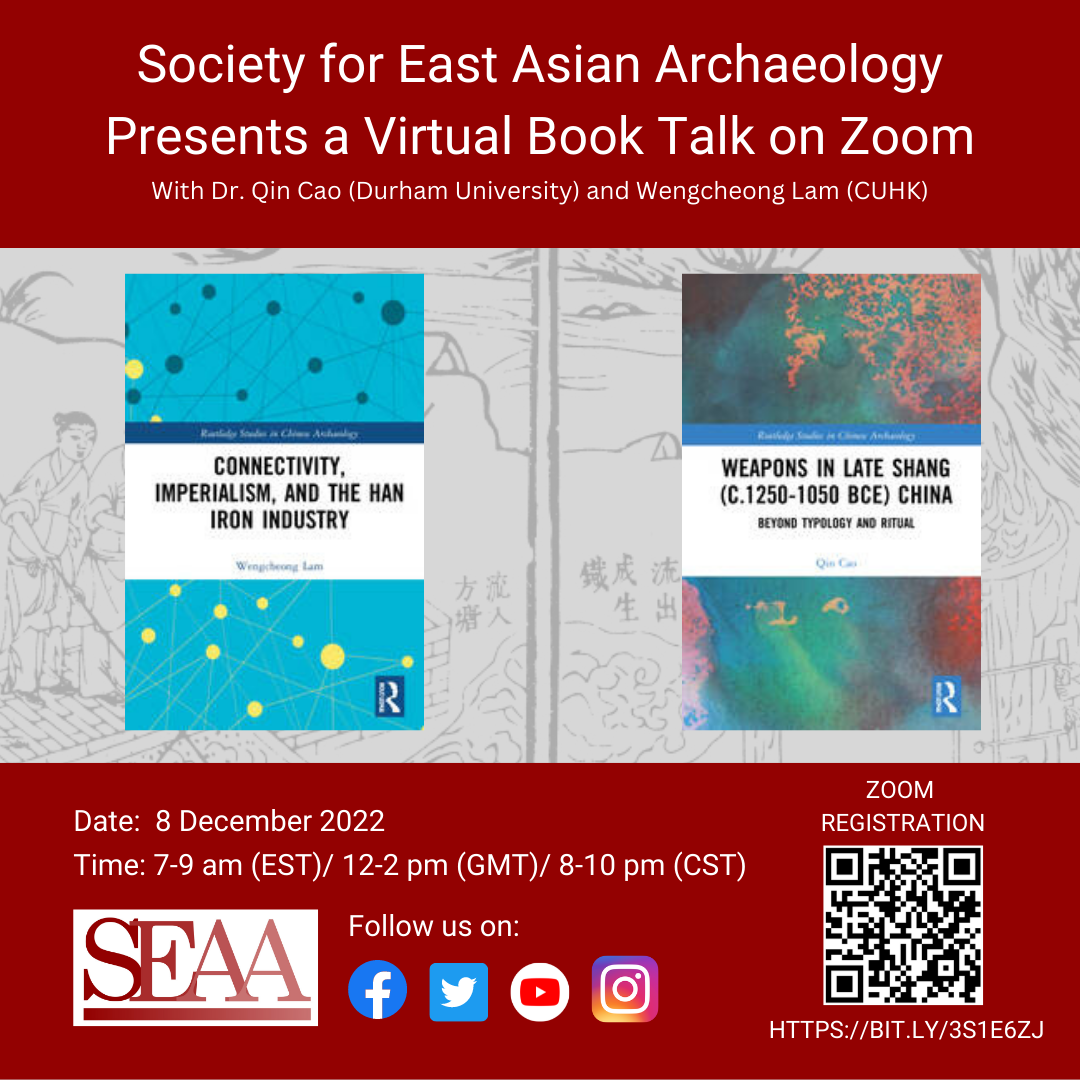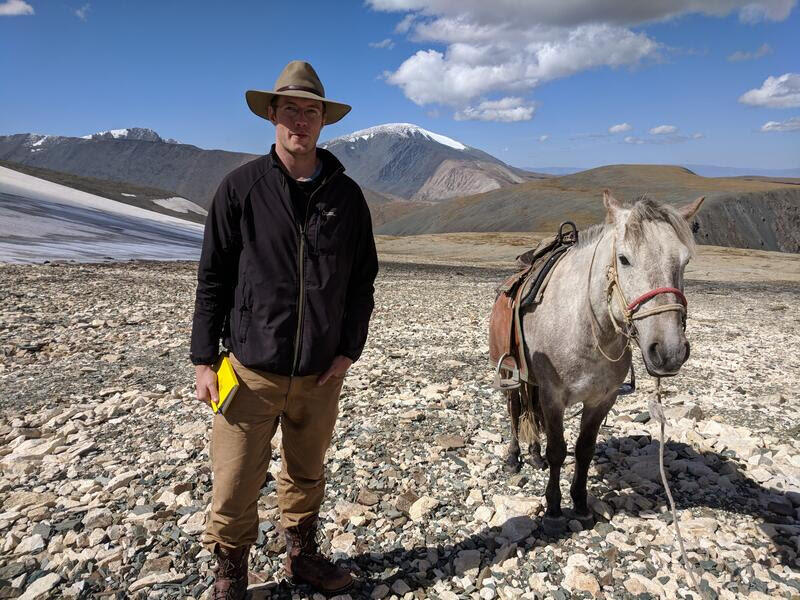Thursday, February 9, 2023, 3:00pm to 4:15pm
Tozzer 203
Abstract: As a taphonomist, Dr. E. Grace Veatch’s research focuses on how archaic and modern humans exploited different resources and ecologies within the temporal and environmental contexts of the Pleistocene/Holocene. Dr. Veatch’s approach to reconstructing the past is rooted in Middle Range Theory where she incorporates ethnoarchaeology, experimental taphonomy, and stable isotope analyses to understand the ecological relationship between humans and the environment. Specifically, Dr. Veatch is interested in ‘meat-eating’ behavior and how smaller animals may have been included in ancient human diets – a resource group frequently overlooked in favor of larger game. For example, her ongoing taphonomic research at Liang Bua (Flores, Indonesia) using the abundant faunal remains is revealing new and exciting details about the foraging behavior of the enigmatic hominin Homo floresiensis. She has discovered evidence that Homo floresiensis consumed both small and large mammals while her most recent research critically examines whether Homo floresiensis had primary or secondary access to Stegodon florensis insularis, an extinct proboscidean and the largest herbivore from the Late Pleistocene of Flores. Beyond her research in Island Southeast Asia, Dr. Veatch has conducted fieldwork in South Africa, Kenya, Malawi, and France. Dr. Veatch received her Ph.D. from the Department of Anthropology at Emory University in 2021, and is currently a postdoctoral fellow in the Human Origins Program at the Smithsonian’s National Museum of Natural History in Washington, D.C.
See also: 2022-2023
Copyright © 2024 The President and Fellows of Harvard College | Accessibility | Digital Accessibility | Report Copyright Infringement


